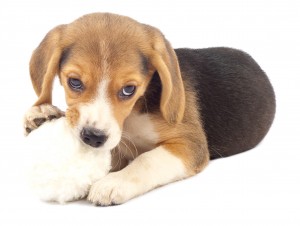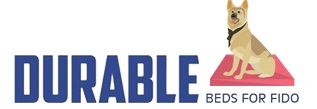How to Stop Your Puppy from Chewing
Puppies go through a teething stage from about four months to the age of ten months.
During this time, they will begin to lose their baby teeth and start growing adult teeth. Chewing is important because it helps the proper growth of their teeth.
But if your puppy is chewing up everything in your house, then you need to train your dog.
There are various ways to help stop your puppy from chewing, depending on the reason why he is chewing.
Begin by teaching your puppy what is okay to chew and what is not okay. Since their teeth feel uncomfortable, puppies will tend to chew anything they get in front of them.
Chewing during that time is not a bad puppy behavior, but actually a search for relief from the soreness of their mouth.
However, you should make sure that your puppy only chews acceptable items.
Problems that Cause Chewing
There can be many reasons behind destructive chewing. Separation anxiety is one of the reasons. If your puppy is suffering from separation anxiety, than he or she may chew only when left alone.
Other signs of separation anxiety include whining, barking, pacing, restlessness, urination and defecation. You must understand the right cause of improper chewing in order to treat it.
Fabric sucking can be a cause of destructive chewing. Some puppies lick and chew fabrics.
If your puppy has a fabric sucking habit, then it will be difficult to distract him from it.
It is also possible that the behavior becomes compulsive. You need to seek professional help if fabric sucking is the case.
Some other reasons for chewing include:
- Your puppy may chew everything because of hunger
- Chewing is common during teething
- Anxiety is a cause of destructive chewing
Correcting Puppy Chewing
Inappropriate chewing is most likely to occur during the teething phase of your puppy. If it is not corrected, it can become very annoying and destructive for your home.
There are some steps you should take to correct inappropriate puppy chewing.
The first step is to make sure your puppy doesn’t have a medical condition, because nutritional deficiencies caused by poor diet can lead to destructive chewing.
Gastrointestinal problems may cause nausea, which can trigger the chewing habit. It is important to consult with a veterinarian to identify any underlying medical problems.
Puppy-proofing is another step which includes looking around your house for possible dangers to your puppy. You should keep your cleaners and chemicals out of his reach.
Cover the electrical cords or make them inaccessible to prevent chewing on them, which could result in electrocution.
Some other steps to stop your puppy from destructive chewing include:
- Encourage appropriate chewing
- Train your puppy and discourage inappropriate chewing
- Spend more time with your puppy
- Engage in playtime with your puppy
It is important to never discipline or punish your dog after the chewing. If you discover a chewed item even minutes after he’s chewed it, you’re too late.
When you’re angry and upset, your puppy feels threatened by your tone of voice.
The steps above should help resolve your puppy’s chewing problem.



